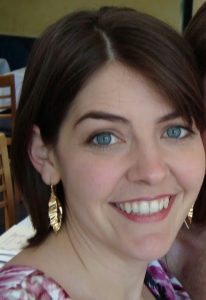A group of public health researchers across the country recently convened to discuss their work and outreach efforts around the coronavirus pandemic in African American and Latino communities, both rural and urban.
It’s no secret that COVID-19 has ravaged low-income communities of color at disproportionate rates. As a result, many public health officials are strategizing on how best to provide and promote access to vaccinations, especially when efforts to misinform are thwarting outreach initiatives.
A webinar titled, “CommuniVax: A Coalition to Strengthen the Community’s Role in an Equitable COVID-19 Vaccination Campaign,” was held last week and included social scientists, public health experts, and community advocates who seek lasting solutions to a serious health problem.
The national alliance is sponsored by the Johns Hopkins Bloomberg School of Public Health. Health workers, doctors and anthropologists from Baltimore, San Diego, Prince George’s County, Maryland, rural Idaho, Hampton Roads, Virginia and rural Alabama shared their experiences in working to educate and vaccinate minority populations.
 Dr. Daniela Rodriguez
Dr. Daniela RodriguezThe researchers noted that while state health departments have tried to remove barriers to vaccine access, the most successful method has been to employ those who work at community clinics and other hyper-local agencies to develop efficient methods to increase the number of vaccinated residents.
Dr. Daniela Rodriguez, an associate scientist at Johns Hopkins Bloomberg School of Public Health in Baltimore, noted that there are a large number of Spanish-speaking residents who do not have access to laptops and smartphones that enable them to easily sign-up for vaccine appointments. In addition to the lack of technology access, she found that many of the undocumented residents who wanted the vaccine were plagued with fears about the ability to take off from work to get the vaccine. Additionally, others were concerned that they could be deported by ICE officials and complained that some vaccination sites did not have adequate resources to communicate with non-English speaking patients.
“Non-government agencies filled in to assist and many over-relied on these agencies,” said Rodriguez. To assist with vaccination efforts, she said, many of these agencies were able to provide food distribution at vaccine sites.
Farm workers in rural Idaho were able to receive vaccinations by the droves, due to an effective public awareness campaign conducted in Spanish at community hotspots, such as grocery stores.
Rural Alabama saw higher numbers of vaccinated African American residents than whites and Dr. Stephanie McClure, an assistant professor of anthropology at the University of Alabama, attributes this trend to the the younger Black residents aiding and assisting older residents with appointments.
 Dr. Noe Crespo
Dr. Noe CrespoDr. Noe Crespo, an associate professor at San Diego State University School of Public Health, noted that in South San Diego “more than 85% of the residents” in his focus area “had received the first dose of the vaccine.” He credited the county health department, the state of California and its provision of vaccinations to community clinics as well as the mobile vaccination sites, in reducing barriers to vaccine access.
In Hampton Roads, Virginia, an outreach team was able to provide laptops with internet access to communities, said Dr. Andrew Plunk, a pediatrician and associate professor at Eastern Virginia Medical School. His team recognized that mistrust of the medical field equaled, “a fundamental” values and goals misalignment.
In Prince George’s County, Maryland, Dr. Stephen B. Thomas, a professor and director of the Center for Health Equity at the University of Maryland School of Public Health, said that his team’s efforts to inform and offer vaccines in local barbershops and hair salons has proven successful. He stressed the importance of hyper-local outreach, which includes, “meeting people where they are” and “the need to treat people with dignity and respect.”
“Lots of the sons and daughters of those who were a part of the Tuskegee Experiments have been getting vaccinated,” he said, adding that many of these individuals have encouraged others not to use that medical experiment to justify not getting the vaccine.
All the panelists agreed that a pipeline to encourage more minorities to enter public health fields could have long-term benefits for marginalized communities and that addressing the underlying health disparities that exacerbated COVID-19 is a huge step in leveling the playing field.





















